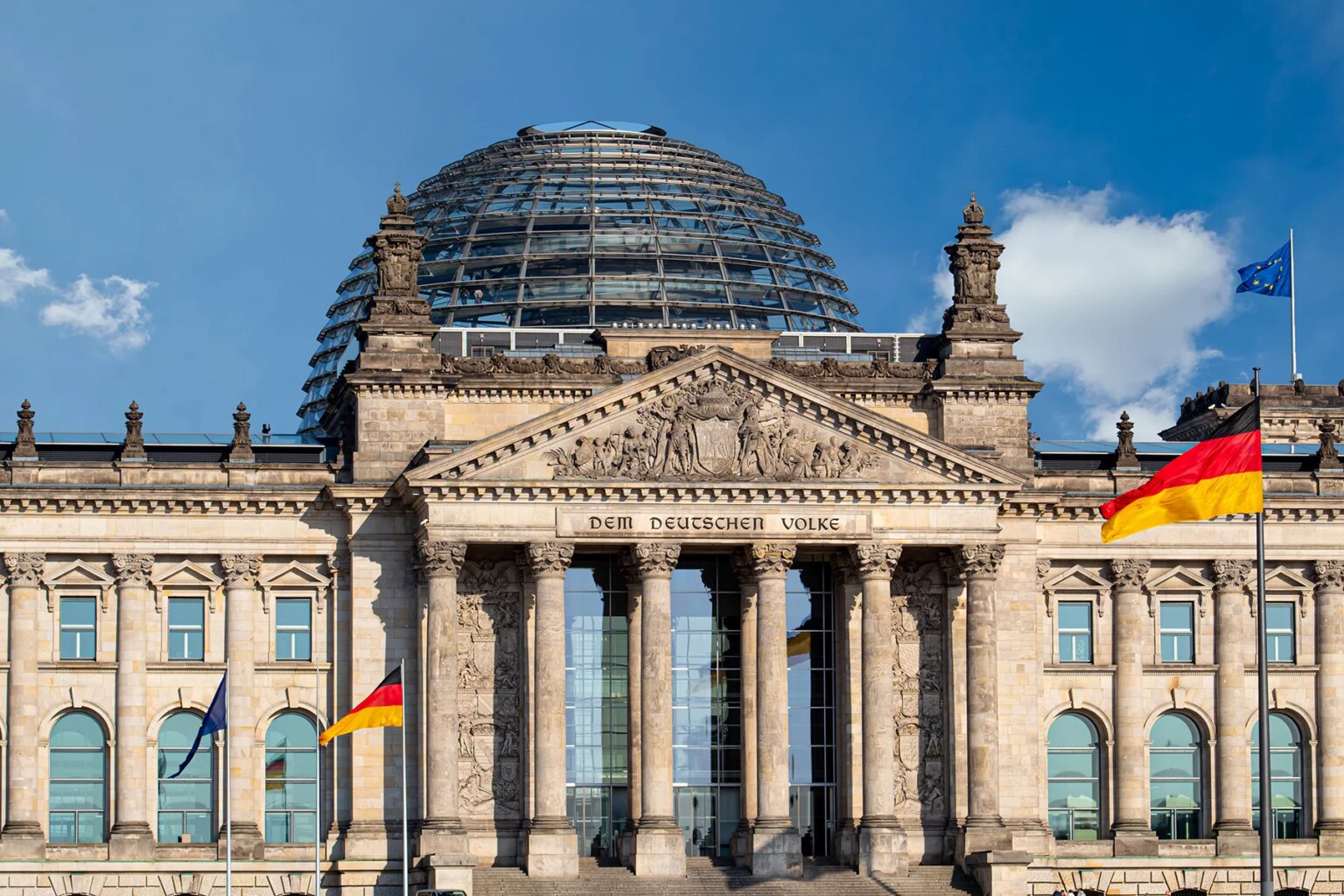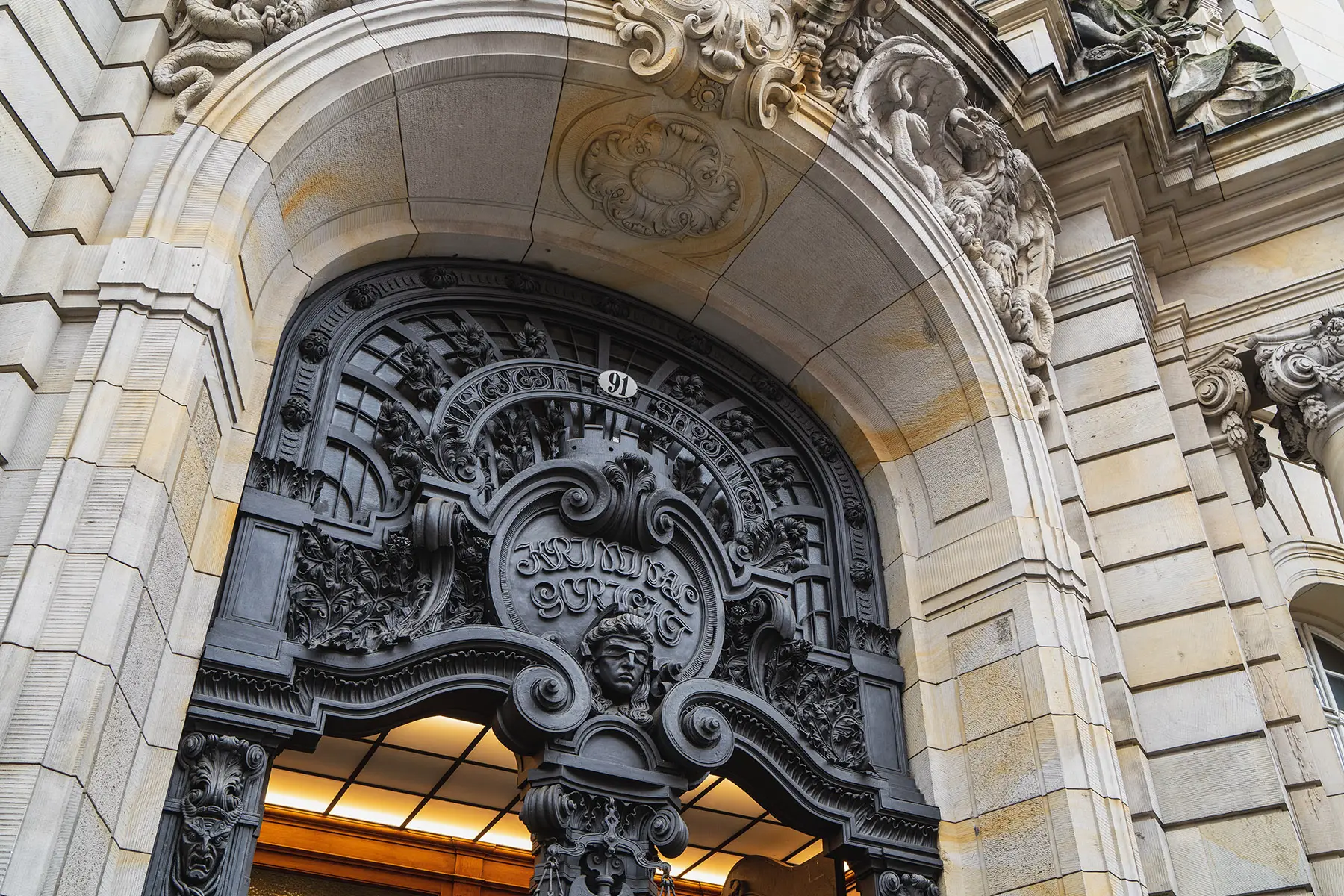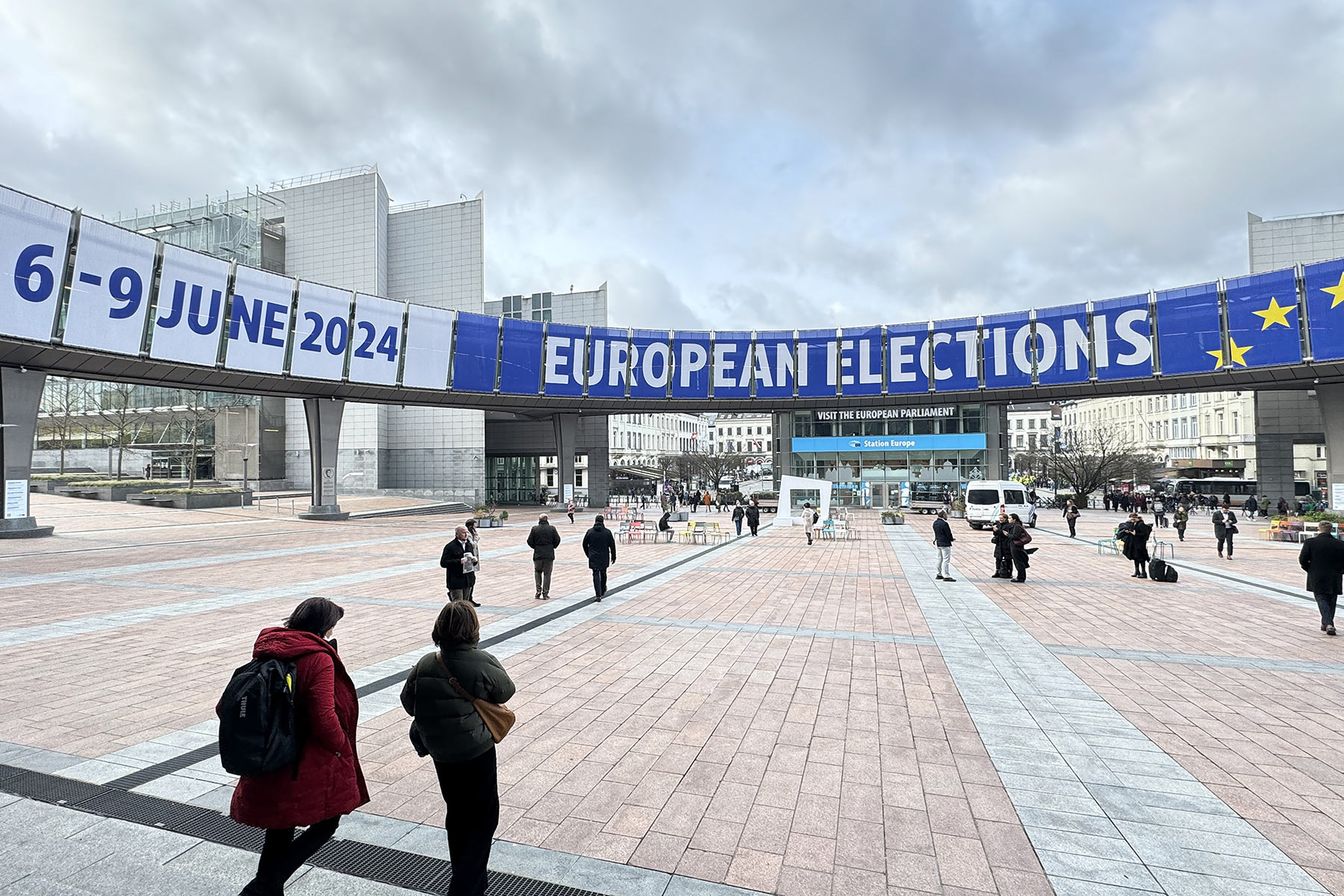Germany has been a unified nation since 1990, although the roots of its current political system can be traced back to 1949. There is a federal government that holds central power, as well as strong regional and local governments.
Continue reading to learn more about:
- Government and political system in Germany
- The German Chancellor and President: who’s in charge in Germany?
- Main political parties in Germany
- Electoral system in the German government
- Voting in Germany
- Political representation in the German government
- Political history of Germany
- Judiciary system in Germany
- Recent political reforms in Germany
- Political tensions in Germany
- Germany and the European Union/EEA
- The state of the economy in Germany
- Grassroots politics and political activism in Germany
- Useful resources
Ground News
Get every side of the story with Ground News, the biggest source for breaking news around the world. This news aggregator lets you compare reporting on the same stories. Use data-driven media bias ratings to uncover political leanings and get the full picture. Stay informed on stories that matter with Ground News.
Government and political system in Germany
Germany is a Federal Republic and parliamentary democracy. The German government, led by the Chancellor, is elected by the public and holds executive power.
Two chambers exercise legislative power: the Bundestag – German parliament – with 709 elected MPs; and the Bundesrat, which represents the 16 federal German states (Länder) and operates as the upper chamber similar to the US Senate or the UK House of Lords.
Germany has a written constitution, known as the Basic Law for the Federal Republic of Germany (Grundgesetz für die Bundesrepublik Deutschland). It came into effect on 23 May 1949 and was adopted by the united German state on 3 October 1990.
Germany ranks 13th on the Economist Democracy Index 2024.
The German Chancellor and President: who’s in charge in Germany?
German Chancellor and Federal President
Although the official head of state in Germany is the elected Federal President, this is a largely ceremonial role. Decision-making power rests mostly with the German Chancellor (Bundeskanzler), who is the head of the German government and its chief executive.
The Federal President is elected for a five-year term in a secret ballot by a Federal Convention consisting of Bundestag and Bundesrat representatives. The President then proposes a candidate for Chancellor – typically the leader of the largest party in German elections, held every four years. The President and the Chancellor don’t have to be from the same political party.
The Bundestag then votes – if more than half of the members agree with the President’s choice, the candidate becomes Chancellor.
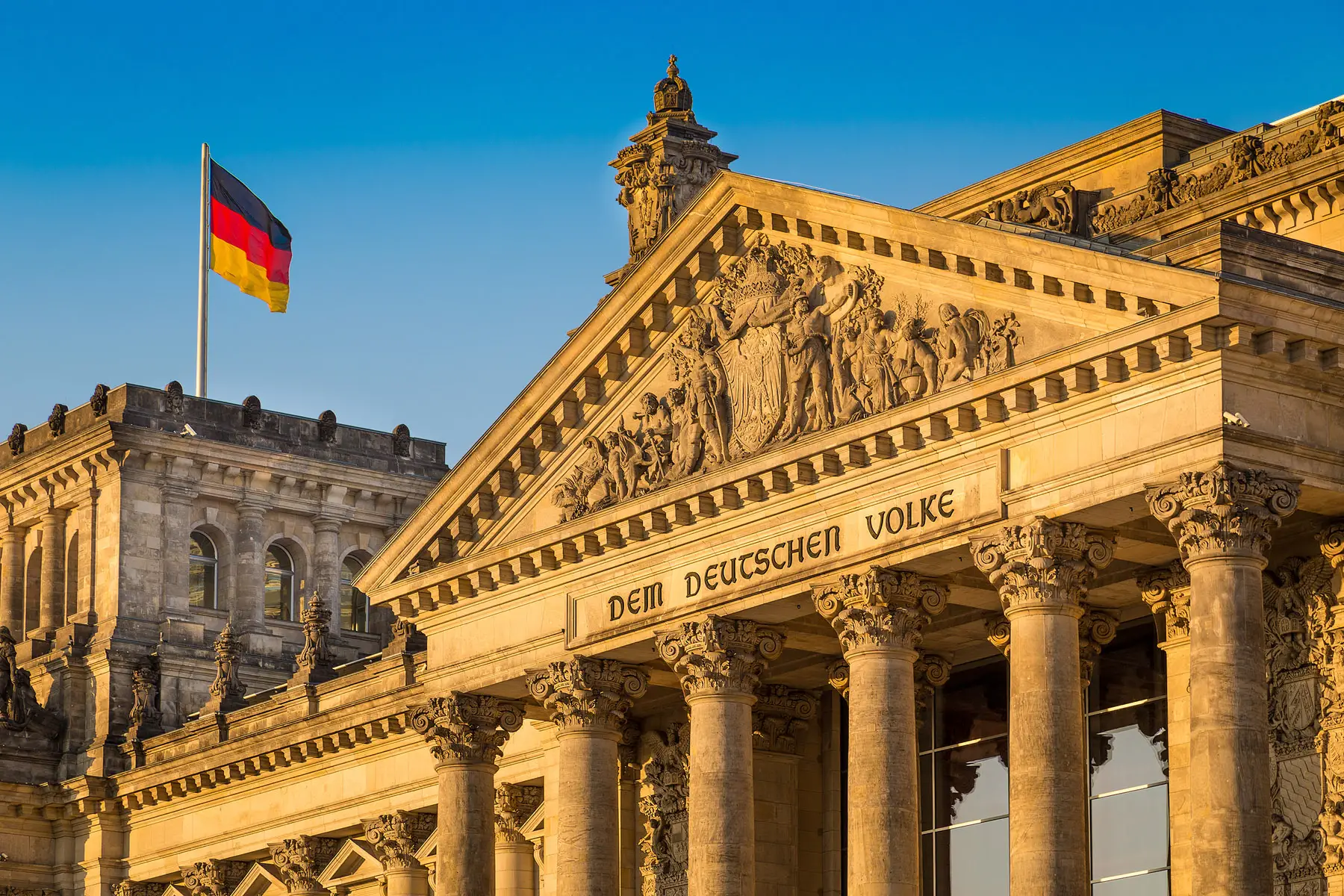
The current German Chancellor is Friedrich Merz from the Christian Democratic Union (CDU), who leads the CDU/Christian Social Union (CSU) coalition. Notably, in May 2025, he lost the first parliament vote to become Chancellor by six votes. A second vote gave him a majority of nine.
Before the 2025 federal election in Germany, Merz was the leader of the opposition from February 2022.
The current President is Frank-Walter Steinmeier of the Social Democratic Party (SPD), who won 74.3% of the vote in 2017. He was re-elected in February 2022.
German government coalition: which political parties are in power?
Since 1966, all federal German governments have consisted of at least two parties. This is led by the largest party in the election, which will form a coalition with other parties. The current government is led by the CDU/CSU in coalition with the Social Democratic Party (SPD).
In the latest election, the CDU/CSU won 208 seats (and 28.5% of the vote), while the incumbent SPD went from 206 to 120 seats and received 16.4% of the vote. Alternative for Germany (Alternative für Deutschland – AfD) took 20.8% of votes, with the Greens on 11.6% and the Left on 8.8%.
Main political parties in Germany
CDU/CSU
The CDU/CSU is a union between the two conservative Christian parties in Germany. These are the Christian Democratic Union (Christlich-Demokratische Union Deutschlands – CDU) and the Christian Social Union in Bavaria (Christlich-Soziale Union in Bayern – CSU). The two parties have always had a close relationship and have been in a union since Germany became a federal republic in 1949.
The CDU/CSU were in power for just over 50 years in total since 1949. They had been leading a coalition government since 2005. The CSU contests elections in Bavaria, while the CDU operates in the other 15 German States. They currently have 208 parliamentary seats.
The CDU, currently led by Friedrich Merz, was founded in 1945. It grew out of the now defunct Catholic Centre Party dating back to 1870. The party stands for conservative social values, a social market economy, and European integration. Support comes mainly from Catholic areas in the south and west of the country, although in recent years, the party has attracted people with different or no religious faiths.
The CSU, whose current leader is Markus Söder, was also formed in 1945. Although the CSU and the CDU agree on most issues, the CSU is generally the more socially conservative of the two parties.
Social Democratic Party (SPD)
The Sozialdemokratische Partei Deutschlands (SPD) is Germany’s oldest political party, founded in 1875. Created from a merger of two socialist workers’ organizations, the SPD was originally a Marxist party and it continues to draw most of its support from working-class communities largely in Protestant northern areas and the industrial cities of the Ruhr.
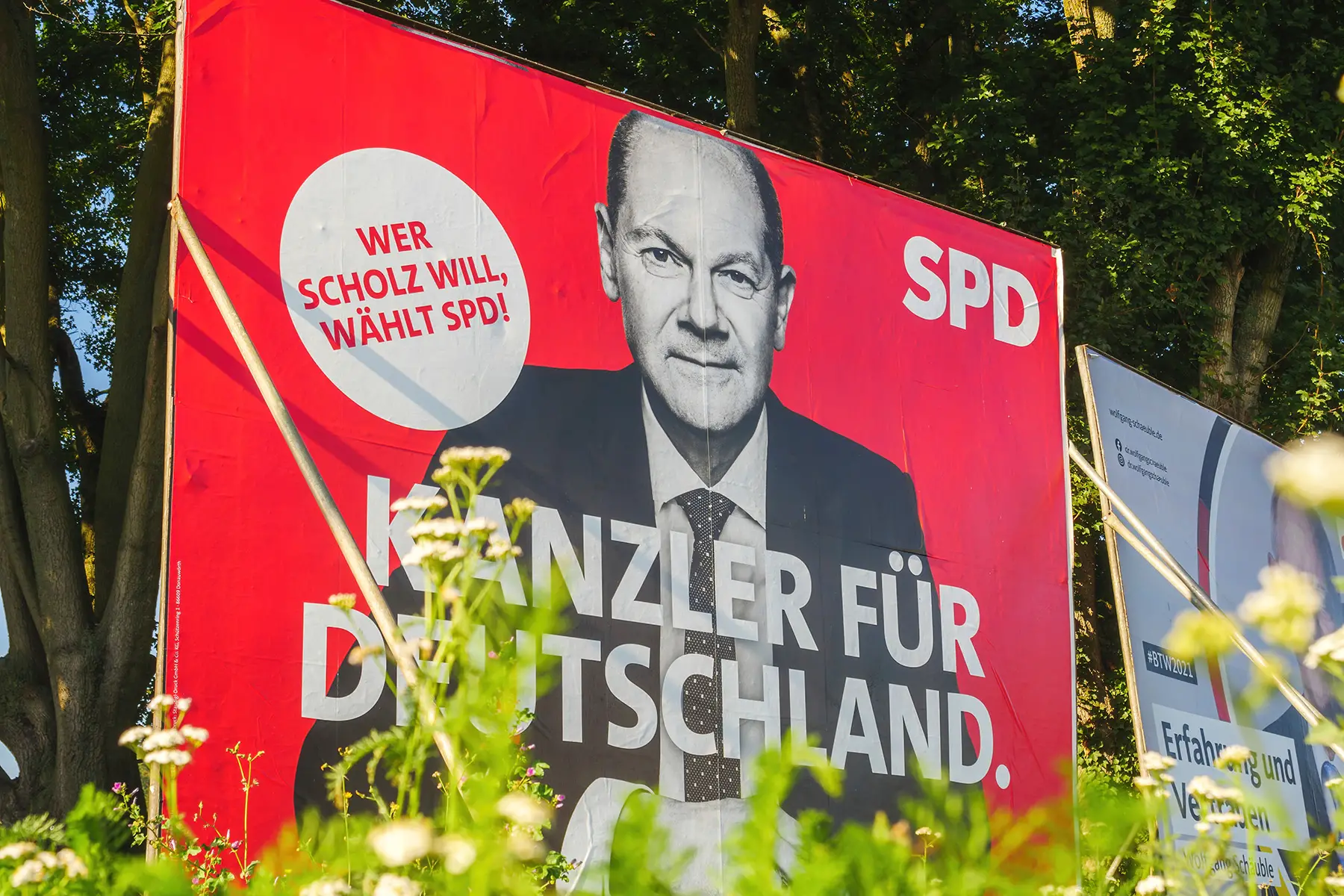
The party was the largest in Germany from 2021 to 2025 and led a coalition government, but this fell apart in late 2024 when SPD leader Olaf Scholz dismissed Finance Minister Christian Lindner of the Free Democratic Party (FPD). This led to a spate of FDP resignations and the coalition’s loss of a majority.
A snap election was held on 23 February 2025 in which the SPD received 120 seats, and the third-largest share of the votes after the CDU/CSU and AfD. The party is now in a German coalition government with the CDU/CSU.
In recent years, the SPD has made efforts to attract middle-class voters. The party platform is social democracy, believing in a strengthened social market economy, a welfare state, civil rights, and European integration. The current party co-leaders are Saskia Esken and Lars Klingbeil.
Alternative for Germany (AfD)
The Alternative für Deutschland (AfD) is a right-wing populist and nationalist German party formed in 2013. The party is known for its opposition to EU membership, anti-immigration policies, and conservative positions such as opposing same-sex marriage and moves towards renewable energy.
In 2025, the Federal Office for the Protection of the Constitution (Bundesamt für Verfassungsschutz – BfV), the German domestic intelligence agency, classified the AfD as an ‘extremist’ organization because of its stances on ethnicity.

Formed in 2013, the AfD came second in the 2025 German election, winning 152 seats and 20.8% of the vote. The current party co-leaders are Tino Chrupalla and Alice Weidel.
Alliance 90/The Greens
The Greens (Die Grünen) formed in 1993 with the merger of the western Green Party and the eastern German Alliance ’90 (Bündnis 90).
Felix Banaszak and Franziska Brantner are the leaders of the party. Other than environmental sustainability, the party’s key issues include social justice, pro-European federalism, high welfare spending, and support for gender equality and LGBT rights.
The party formed a coalition with the SPD between 1998-2005. After being the third-largest party in the 2021 federal elections, it fared worse in 2024, dropping to fourth-largest and gaining 14.7% of votes and 85 seats.
The Left
The Left (Die Linke) was formed in 2007 when the successor to the communist party ruling East Germany – the Party of Democratic Socialism (PDS) – merged with the trade unionists and left-wing breakaway SPD members of the Labour and Social Justice Party (WASG).
It’s the most traditionally left-wing party in the Bundestag. Ines Schwedtner and Jan van Aken are co-leaders. It stands for democratic socialist policies and Keynesian economics, including increased government public spending and more taxes for corporations and high earners. Many voters are from the older generation, and its members span from communists to social democrats.
The Left currently has 64 parliamentary seats, up from 39 in 2021.
Free Democratic Party (FDP)
The Freie Demokratische Partei (FDP) is Germany’s liberal party, believing in both economic and social liberalism, similar to the Liberal Democrats in the UK. This means it supports a free market economy, civil liberties, human rights, and internationalism. It occupies the ground between the center and center-right.
The FDP was founded in 1948. It has been the junior partner in coalition governments with both of the main parties, meaning that it has actually spent more time in power than any other party.
The FDP lost all of its 91 seats in the 2024 election.
Electoral system in the German government
Germany uses an Additional Member System (AMS) to elect its Bundestag MPs. Essentially, this is a mix of First Past The Post (FPTP) and proportional representation (PR).
German elections take place every four years. Each voter in Germany gets two votes. The first vote is a direct vote for a constituency MP. This determines 299 parliamentary seats, with MPs being the candidates with overall majorities in the 299 German constituencies.
The second vote is from a party list. Voters choose which party they want to vote for. The remaining 299 MPs are determined by the overall share of votes. MPs elected via the first vote are taken into consideration. So, for example, if a party’s share of the second vote gives them 12 MPs and they win 9 constituency seats through the first vote, they can fill the remaining 3 seats with their top candidates from a pre-published list.
In addition to this, there are currently 111 overhang or so-called balance seats. This is to redress any imbalances where a party’s overall share of the vote entitles them to fewer MPs than they won directly through the first vote.
For example, if a party has 10 candidates that win in individual constituencies through the first vote but only win 8 MPs in total through the second vote, they get two overhang seats to ensure that they have the minimum number of directly elected MPs.
To prevent too much fragmentation and too many smaller splinter parties from entering parliament, each party must win at least 5% of the vote to gain a parliamentary seat.
German government and Cabinet of Ministers
The party with the most overall MPs in Germany forms a government, either on their own if they have a majority (over 50% of seats) or in coalition with other parties to take them over the 50% threshold if not. Most German governments since World War II have been coalitions.
The Chancellor then forms a Cabinet of Ministers (Bundesregierung), the executive body of parliament, to head the different departments such as employment, health, and defense. There are currently 15 German cabinet ministers, including the Chancellor.
Bundesrat system
The Bundesrat is the German upper chamber, or second chamber. It currently consists of 69 representatives of the 16 German states. Each state gets between 3-6 representatives, based on its population. For example, Bavaria (population of nearly 13 million) has six members, while Saarland (just under a million inhabitants) has three members.
In contrast to the elected Bundestag MPs, the members of the Bundesrat are delegated by their respective state governments. They don’t serve for a fixed period of time.
Voting in Germany
Germans vote in four different types of elections – parliamentary (federal), state, municipal, and European.
Only German citizens older than age 18 can vote in parliamentary (Bundestagswahl) elections.
Usually, only 18-year-olds can vote in state elections (Landtagswahl), but you can vote from 16 in the following states:
- Baden-Württemberg
- Brandenburg
- Bremen
- Hamburg
- Mecklenburg-Vorpommern
- Schleswig-Holstein
These elections take place every four to five years, and dates vary across the 16 German states.
The voting age is 16 for European and municipal elections. However, five states (Saxony, Saarland, Rhineland-Palatinate, Hesse, and Bavaria) have raised the voting age to 18 for all elections.
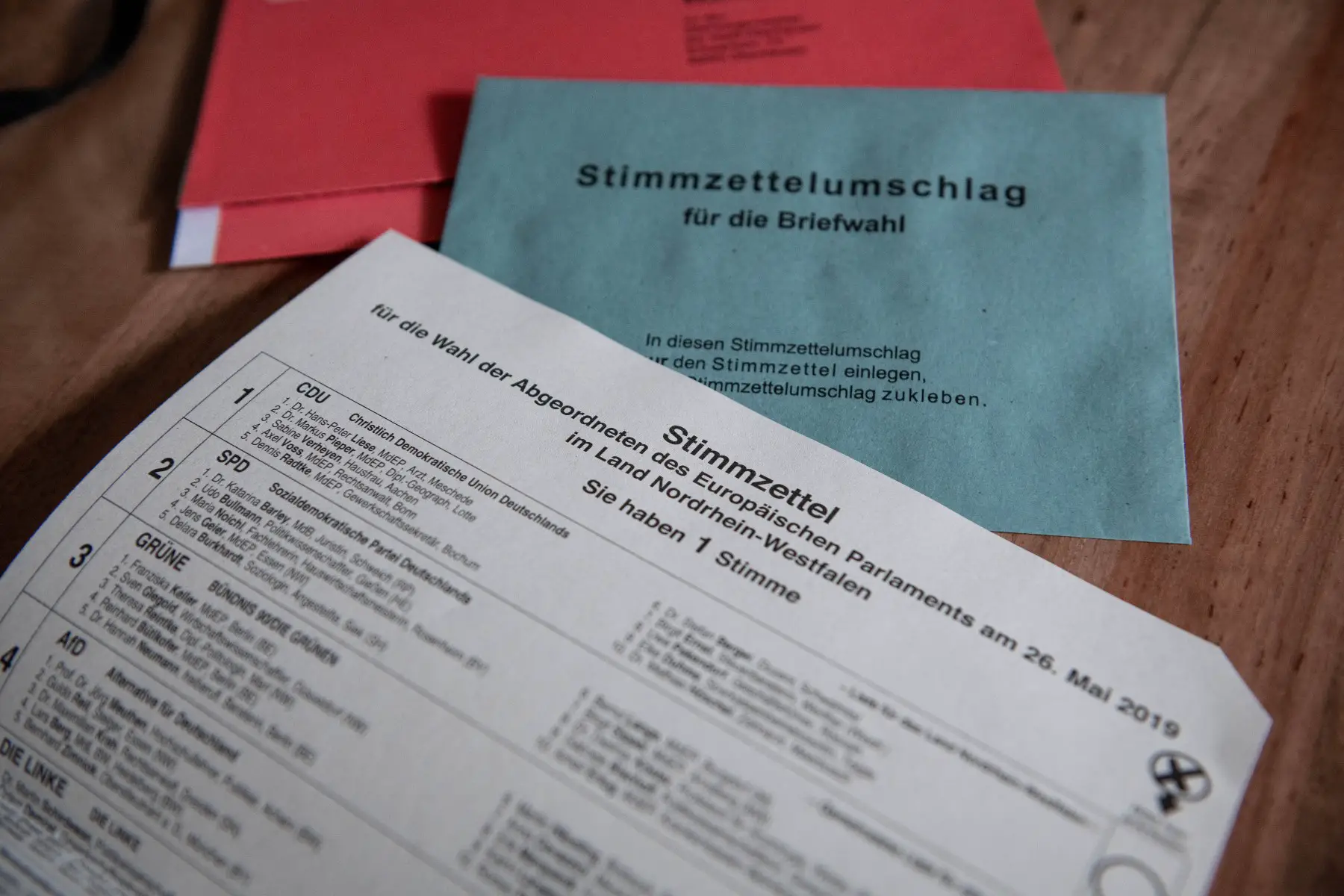
Non-EU residents in Germany cannot vote unless they become German or EU citizens. Additionally, prisoners, those detained in psychiatric hospitals, and people convicted of treason cannot vote.
German government elections usually take place on a Sunday. You need to go to a polling station with your polling card and a valid ID to cast your ballot. You can vote by absentee ballot if unable to attend in person. Many Germans living abroad do this. Registering to vote is automatic when you register your address with your local authority.
Voter turnout in Germany is typically high and reached a record of 82.5% in the 2024 federal election.
Expat voting rights: who can vote in Germany
Foreign citizens living in Germany may not vote in federal or state elections or referendums. However, citizens of other EU countries can vote in municipal elections and European Parliament elections.
Political representation in the German government
Anyone who is a German citizen over 18 and eligible to vote can stand for office in German elections. The exception is in the state of Hesse where you have to be at least 21 to become a state representative. EU citizens who are German residents can stand as candidates in European elections.
In terms of political representation, women and immigrant groups remain underrepresented. Just 35.7% of the Bundestag MPs are female. Around 11.6% have immigrant backgrounds (either not born as German citizens themselves or have a parent who was not) compared to around 25% of the general population.
Political history of Germany
The history of the modern German political system goes back to the end of World War II. Germany was divided into four zones (France, UK, US, and USSR) following the Allied victory over the Nazis. Two separate states emerged in 1949 – the Federal Republic of Germany (FRG or West Germany), including the French, UK, and US zones, and the communist German Democratic Republic (GDR or East Germany) consisting of the Russian zone.
The two states officially reunified on 3 October 1990 following the fall of the Berlin Wall and the beginning of the collapse of East European Communism. The GDR joined the Federal Republic, five new states were established or re-established, and East and West Berlin became a single unified state. The 1949 constitution established by West Germany became the constitution for the whole German nation.
Germany has remained a stable democracy since 1990, governed by a series of coalitions involving – at different times – the CDU/CSU, SPD, FDP, and the Greens. However, the eastern parts have remained more economically disadvantaged than the west since reunification.
Judiciary system in Germany
Germany, similar to many other democracies, has a judiciary that is independent of the executive and legislative branches of the state. It operates a system of civil law based on its constitution, codes, and statutes passed by Federal Parliament, and EU laws.
There are three types of German courts:
- Constitutional courts, which are the Federal Constitutional Court (Bundesverfassungsgericht) and the constitutional courts in each of the 16 states. The Federal Constitutional Court is the Supreme Court in Germany and can rule in cases where there is a breach of someone’s constitutional rights.
- Ordinary courts, which deal with most civil and criminal cases. These include local courts, regional courts, and the Federal Court of Justice (Bundesgerichtshof), which is the court of appeal in matters of civil and criminal law.
- Specialized courts, which consist of administrative courts, labor courts, financial courts, and social courts.
Judges in German courts get more involved in cases than in many other countries. For example, they cross-examine witnesses and defendants and review evidence rather than just preside over cases and give verdicts.
The Federal Constitutional Court has 16 judges, half elected by the Bundestag and half by the Bundesrat.
Recent political reforms in Germany
March 2025: Debt brake relaxation
In March 2025, Germany relaxed its ‘debt brake’ (Schuldenbremse), which previously prevented the government from taking on too much debt. This change allowed for a €500 billion investment fund for infrastructure and additional borrowing for defense.
Political tensions in Germany
The biggest tensions in the German government and politics in recent years have been around immigration, particularly concerning asylum-seekers and refugees. During the 2015-16 refugee crisis, Germany received over 1.2 million asylum applications – more than any other European country.
Although many of these new arrivals have since integrated successfully into German society, the sudden increase in immigration divided German citizens. Around 40% believed that the country wasn’t equipped to cope with this number of refugees.
The right-wing anti-immigrant AfD party capitalized on tensions to become the second-largest opposition party in 2017 and the largest in 2025.
Germany and the European Union/EEA
Germany is a founding member of the EU and has been a member state since 1958. It has also been a Schengen Area country since 1995 and part of the Eurozone since 1999. There are currently 96 German MEPs and the country has permanent representation in Brussels.
Although Germany is a key participant in European politics and the majority of its citizens support EU membership, Euroscepticism has increased in recent years. The AfD party has campaigned on an anti-EU platform as well as for a withdrawal from the Eurozone. It won 15 seats in the 2024 European elections.
Despite the increase in Euroscepticism, Germany has played a pivotal role in European defense initiatives, cooperating with other EU states to expand defense capabilities. It has also allocated €17.25 billion in military, humanitarian, and financial aid to Ukraine since 2022, making it the second-largest donor after the United States.
The state of the economy in Germany
Germany has a highly developed social market economy that is the largest in Europe at US$5.7 trillion (2023), or US$69,027 per capita when adjusted for purchasing power parity. The service sector accounts for around 70% of GDP. Germany is also one of the world’s largest exporters, with cars, electronics, pharmaceuticals, and food among its top exported products.
As with much of the rest of the world, inflation has been a growing concern in Germany in recent years. You can read more about rates and what this means for consumers in our guide to the cost of living in Germany.
Grassroots politics and political activism in Germany
Local political activism in Germany varies across states and regions. Unsurprisingly, you’ll find more groups and grassroots events in bigger cities such as Berlin and Munich. Nationally, some of the bigger recent movements include Stand Up (Aufstehen), an attempt by the German left to encourage people to engage with politics and grassroots activism. Extinction Rebellion has also been active in Germany, holding many demonstrations.
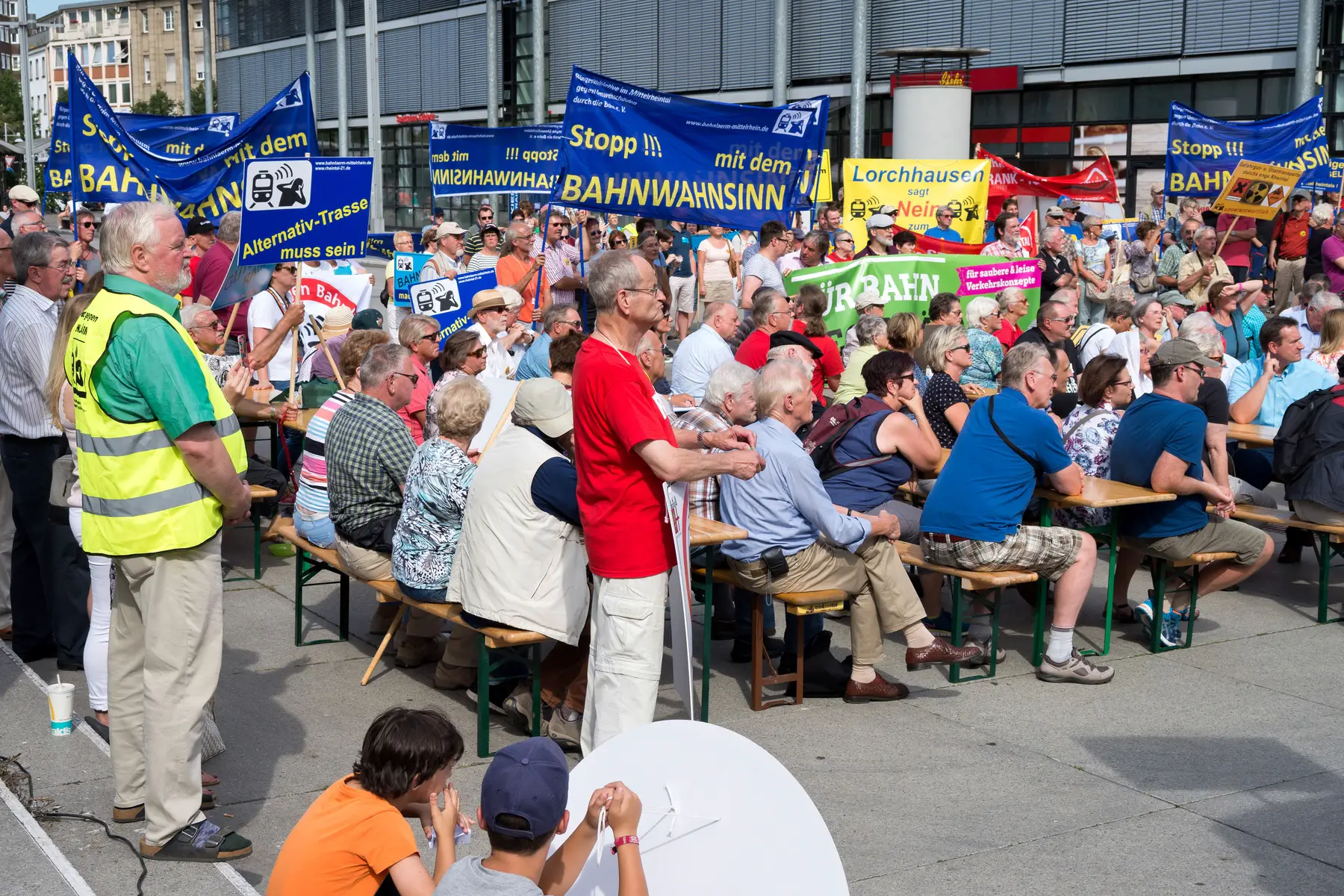
Ways to get involved with politics or political/social causes in Germany include:
- Joining a Citizens Initiative (Volksbegehren or burgerbegehren) – these are a form of local direct democracy where citizens campaign for a particular issue. If there is enough local support, citizens can force a referendum on the issue.
- Attending a local government meeting (Bezirksverordneteversammlung – BVV) – these are held monthly in most municipalities. If you are an EU citizen, you can stand to become a local councilor.
- Founding your own charity or community group – if you have enough time on your hands and a cause that you believe in, you could look at forming your own non-profit group or organization (Verein).
Useful resources
- Bundesregierung – website of the Federal German government
- Bundestag – website for the federal parliament
- Bundesrat – website for the German upper chamber representing the 16 states
